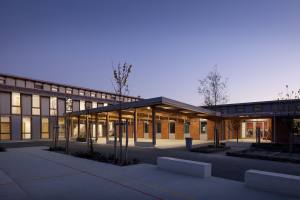Advances in life cycle assessment, 5 HP/ECTS/

Event Detail
This course gives an in-depth orientation of LCA. It includes a broad range of LCA-related topics: the methodology, its application, its relation to other assessment tools, its role in decision-processes, etc. It is a collaboration between the partner universities within the Swedish Life Cycle Center (SLC): Swedish University of Agricultural Sciences (SLU), Chalmers University of Technology and KTH Royal Institute of Technology.
Objectives
The objective of this course is to give the student a broad view of life cycle assessment (LCA) methodology and application, including knowledge on state-of-the-art research in selected areas, disseminate the expertise and experiences of senior LCA researchers to a new generation of PhD students, and help the PhD students create an informal network of young LCA researchers.
Outline of Content
The course combines seminars led by senior LCA researchers with student-centered discussions and activities. During the seminars, senior researchers will present and problematise methodological approaches and applications of LCA, based on their experiences in research and application of life cycle thinking in various areas.
Some of the senior LCA researchers and lecturers involved in the course include:
Tomas Ekvall, Ann-Marie Tillman, Michael Hauschild, Serenella Sala, Henrikke Baumann, Mathias Janssen, Valentina Bisinella, Paola Federica Albizzati, Bengt Steen, Francesca Verones, Ulrika Palme, Niclas Ericsson, Martin Futter, Dilip Khatiwada, and Elisabeth Ekener.
This course contributes to creating an informal network of PhD students and young researchers. During meetings, students participate in group discussions where they get a chance to learn from each other’s experiences, reflect on their own and others’ research in view of earlier and current LCA research, and discuss limitations and possibilities for future development of their work. The students will also present their current and planned work to others. An important aspect of the meetings is also to engage in networking activities.
Outline of Schedule
The course will consist of three weeks, with the first week being in person at the Chalmers campus in Gothenburg. The second week will be held online , and the third week will be held in person at the SLU campus in Uppsala.
Each day will consist of both seminars led by senior researchers and student-centered activities. In between the meetings all students will work individually and in groups to prepare for presentations during the second week of in person gathering. Course literature will be announced prior to course start.
The seminars and discussions will include topics such as:
Perspectives on LCA and environmental analysis; The history of LCA; LCA in legislation; LCA as a multi-purpose tool in the organization; Actors in the life cycle; Attributional/Consequential LCA; Data selection; Time in LCA; Prospective LCA; Uncertainties in LCA; Fundamental LCIA concepts and methods; Biodiversity; Waste Management; Water Footprint; Climate impact; Monetary valuation; AI in LCA; Life Cycle Costing; Social LCA; and Life cycle sustainability assessment.
Locations
The first week will be held in Gothenburg, at Chalmers University of Technology on the 17th-20th of April.
The second week will be held online the 8th, 10th and 12th of May.
The third week will be held in Uppsala, at SLU, campus Ultuna on the 22nd-25th of May.
Required previous knowledge
To be admitted to the course the student must be admitted to third-cycle education in a topic of relevance for the course. The student must also have completed an undergraduate or graduate LCA course, have significant experience from the use of LCA, or be able to demonstrate similar competence




